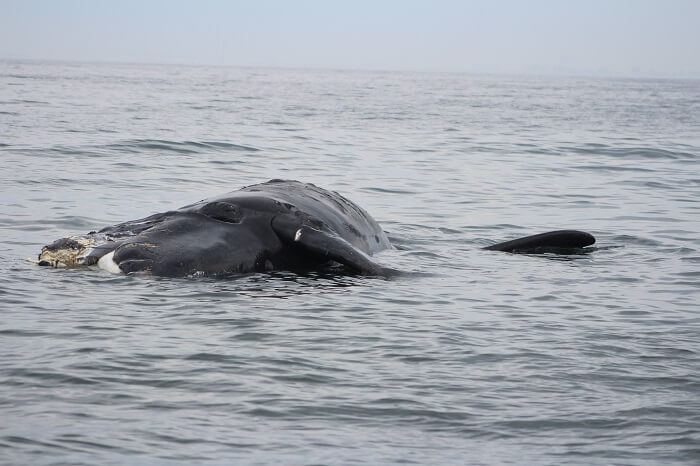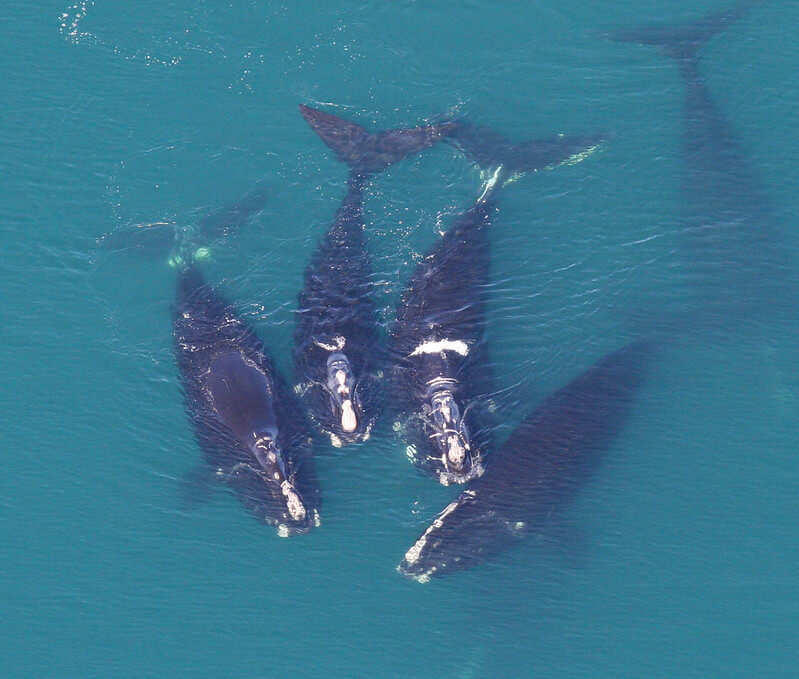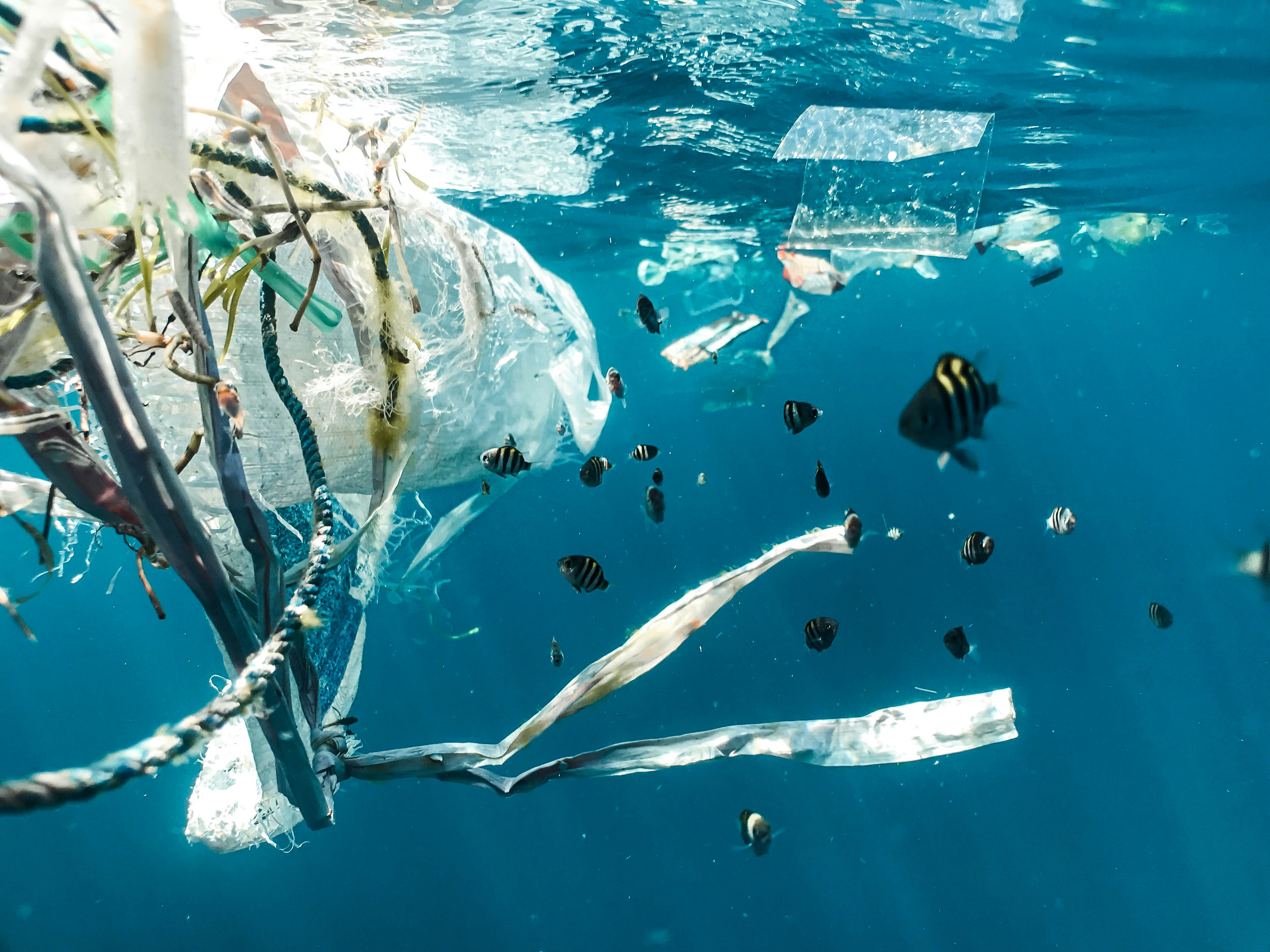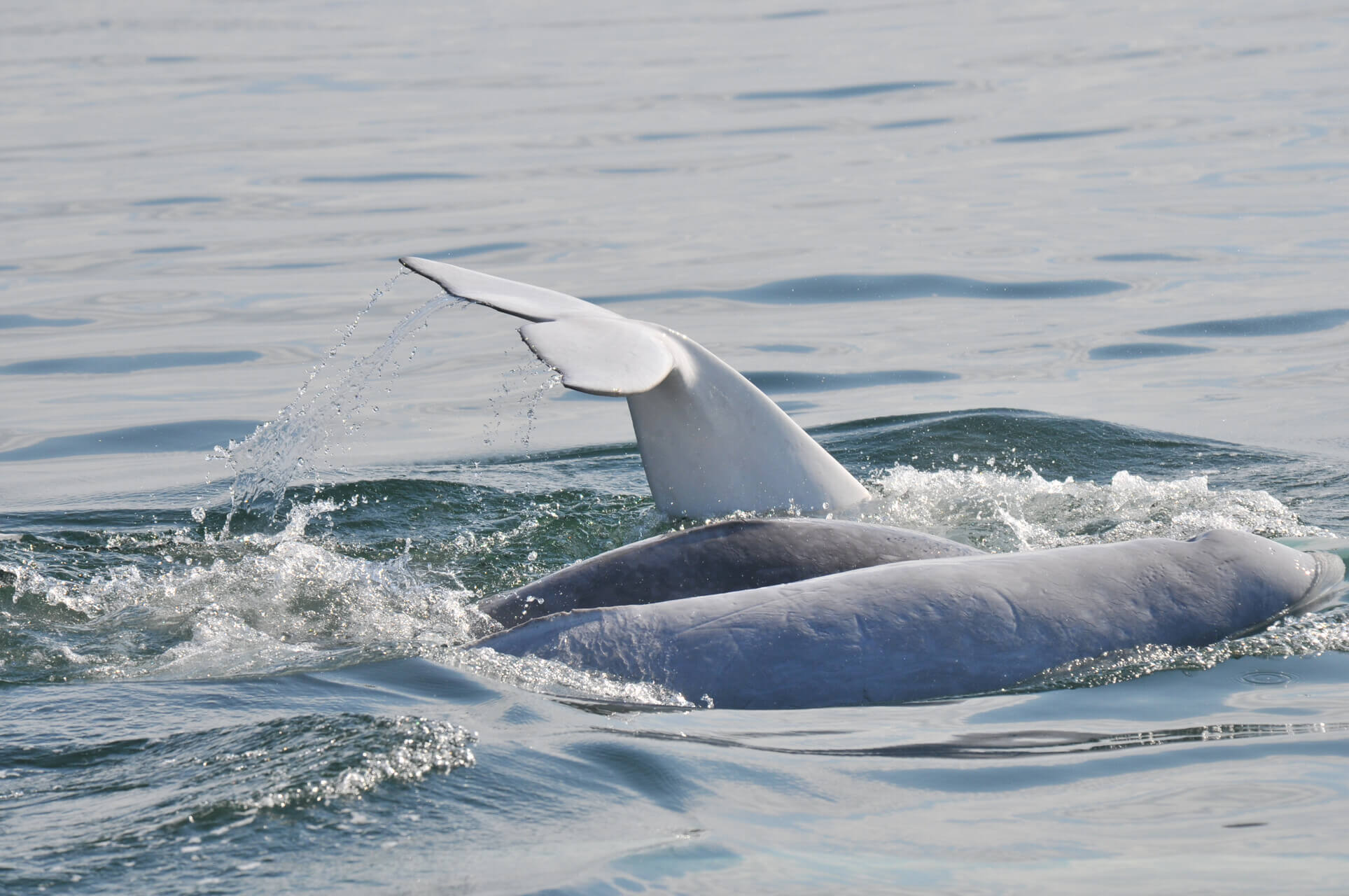North Atlantic right whales are one of the most vulnerable cetacean species on the planet. With less than 350 individuals in their population, these giants of the sea are currently in a delicate situation. When the subject of their precariousness comes up, the culprits most often pointed at are climate change and human activities in the ocean. However, these factors are not the only ones behind the current situation of these whales.
In his new book, “We Are All Whalers”, researcher Michael J. Moore paints a comprehensive picture of the challenges facing right whales, emphasizing the role that everyone plays in their conservation. Whales Online spoke with this passionate and philosophical researcher.
What led you to dedicate your career to the study and conservation of whales?
When I was studying veterinary medicine at Cambridge, my professors often mentioned marine mammals in class to talk about their physiology. My curiosity was piqued, and I subsequently read several books on the subject. This later led me to explore the world of whales in depth and to participate, among other things, in a project on humpback whales in Newfoundland, Canada, and to collect data on the efficiency of harpoon hunting on an Icelandic whaler. These experiences gave me a comprehensive perspective on the issues affecting these animals.
After these projects and the completion of my studies, I tried to establish my veterinary practice in the United States, but although I enjoyed the contact I had with my clients, I missed the world of research and the whales were still on my mind. So, I went back to school until I got my Ph.D., which was done jointly with MIT and WHOI in Massachusetts. Thus, for more than 30 years, whales, particularly North Atlantic right whales, have occupied much of my time and thoughts.
Why are we "all whalers"?
According to the Oxford English Dictionary, the definition attributed to the word “whaling” refers to any action aimed at “capturing, especially that which attempts to escape; hence, to ensnare, surprise, overtake, reach, seize…”. Modern industrial practices such as marine traffic, trap fishing, gill netting, and trawling all constitute, albeit accidentally, whaling if they “catch” or kill a whale. Entanglements are thus a form of “whaling” in a sense, indirectly making the people who engage in these activities “whalers”.
But they are not the only ones. We, as consumers, create a demand for the products of these activities, whether it is fish, seafood, or any item delivered by the sea. It is by maintaining this growing demand that we indirectly become whalers as well: our lifestyle choices have a direct impact on the issues related to the survival of whales.
This is particularly true in the case of North Atlantic right whales since they frequent waters where human activity is generally very high. Ensuring their survival is, therefore, a major challenge in this context where they are very vulnerable.
What solutions can be put in place to remedy the situation?
‘For people like you and me, who are consumers, the solution is to leverage our consumption of products from the fishery, or imported by ship, to make those activities less traumatic to whales. We are all responsible for the survival of whales, and our daily choices have an impact on their reality.
"It is by maintaining this growing demand that we indirectly become whalers as well: our lifestyle choices have a direct impact on the issues related to the survival of whales." -Michael J. Moore
As for the fishing industry, several solutions can be implemented, but the simplest would be to reduce the amount of fishing gear in the marine environment, and rope in the water column. The less gear there is, the lower the risk of marine mammal entanglement. One way to do this is to replace traditional traps with acoustic traps: fishing gears without ropes. They are located by using GPS or acoustics and hauled up by remote release of either bottom stowed buoyant rope, or an inflatable bag. This technology is currently not widely used and represents only a small proportion of the traps used. In addition, these devices are currently expensive and more difficult to obtain than rope traps. This technology will take some time to become more accessible to all. Combined with this, in-store identification of products from a fishery using such measures is also a possible solution.
‘However, these initiatives can be costly – but regulatory incentives are starting to encourage a change in current practices both in Canada and the U.S. But the real question is, do marine mammals, particularly North Atlantic right whales, have time to wait for these solutions that will take a few more years to materialize?
The Canadian measures of the last few years seem to be bearing fruit, which allows for some optimism.’However, it is harder to say the same about the American side: where the highly complex administrative system slows down the implementation of effective measures. For conservationists and environmentalists, this is a leviathan of a problem.









